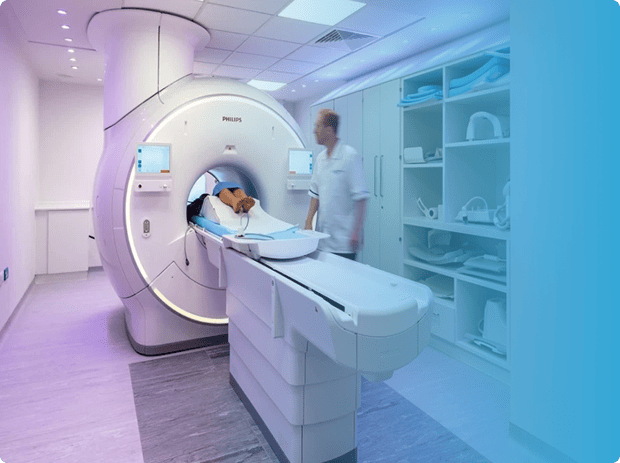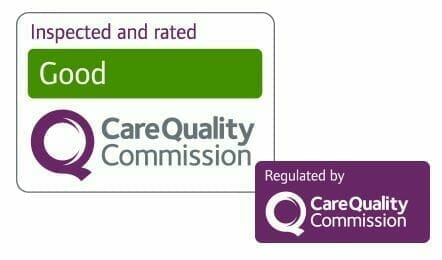Can Abdominal Pain Be a Sign of Pregnancy?

Pregnancy is a beautiful and exciting journey, but it can also be a confusing and challenging experience. One of the most common questions that women have during early pregnancy is whether abdominal pain is a sign of pregnancy.
In this article, we will discuss this topic thoroughly and give you all the information you need to know. Abdominal pain can be a sign of pregnancy, but not all abdominal pain during pregnancy is worrisome. In fact, many women experience mild to moderate abdominal discomfort as their bodies adjust to the changes happening within.
Abdominal Pain in Early Pregnancy
Abdominal pain or cramps are common during early pregnancy. They are usually mild and occur because of the changes happening in your body as it adapts to pregnancy. The pain can feel like menstrual cramps, a dull ache, or sharp twinges. It can occur on one or both sides of the abdomen and may come and go.
During the early stages of pregnancy, the uterus begins to expand to accommodate the growing baby. This expansion can cause some stretching and pulling sensations in the lower abdomen, which may feel similar to menstrual cramps. Implantation cramps are the pains felt when the fertilised egg attaches to the uterine lining.
In addition to implantation cramps, some women may also experience round ligament pain. The round ligaments locate on either side of the uterus and provide support to it during pregnancy. As the uterus grows, these ligaments stretch and can cause sharp, shooting pains in the lower abdomen. People usually feel this pain on one side, and sudden movements or changes in position can cause it.
According to the NHS, abdominal pain in early pregnancy can be caused by several reasons, including:
- Implantation: When the fertilised egg implants in the uterus lining, it can cause mild cramping and spotting.
- Constipation: Hormonal changes in pregnancy can slow down digestion, leading to constipation and abdominal pain.
- Gas: The increased levels of progesterone in pregnancy can cause gas buildup, leading to discomfort and pain.
- Ligament stretching: As your uterus grows and expands, it can stretch the ligaments that support it, causing mild pain or discomfort.
- Pregnant women are more likely to get urinary tract infections, which can cause pain in the lower abdomen.
When to Seek Medical Attention
Mild belly pain is normal in early pregnancy, but strong or lasting pain could mean a serious problem. You should seek medical attention if you experience severe or persistent abdominal pain, as it could indicate a serious problem. It is important to consult with a healthcare professional to ensure the well-being of both you and your baby. You should seek medical attention if you experience:
- Severe or persistent pain that does not go away
- Pain accompanied by bleeding or spotting
- Pain on one side
- Pain during urination
- Fever or chills
These symptoms may indicate ectopic pregnancy, miscarriage, or a urinary tract infection that needs medical attention.
It is worth noting that not all abdominal pain during pregnancy is normal. If you have strong or long-lasting pain, and also have bleeding, fever, or dizziness, you should see a doctor. These could be signs of a more serious condition, such as an ectopic pregnancy or a urinary tract infection.
To alleviate mild abdominal discomfort during pregnancy, there are a few self-care measures you can try. Using a warm cloth, taking a warm bath, or doing gentle prenatal yoga can help ease the pain. It is important to stay hydrated, eat a balanced diet, and avoid strenuous activities that could exacerbate the discomfort.
Conclusion
Abdominal pain is common in early pregnancy because of changes in your body. Remember, every pregnancy is unique, and what may be normal for one woman may not be for another.
If you're worried about stomach pain while pregnant, it's best to talk to your doctor or healthcare provider. They can provide personalised guidance and ensure the well-being of both you and your baby throughout this incredible journey.
Mild pain is usually not a problem, but severe or ongoing pain could be a sign of a serious condition. If you have any worrying symptoms, it's important to see a doctor right away. Remember that every pregnancy is different, so don't hesitate to talk to your healthcare provider if you have any concerns.

Patient Friendly MRI Scan at UME Health
Our open MRI machine provides a more spacious and less enclosed environment, which can ease any feelings of anxiety or discomfort during the scan. We also allow a friend or family member to sit in the room with you during the scan, if that would make you more comfortable.
UME Group LLP. Registration number: OC333533. A Company Registered in England and Wales. Registered office: 17 Harley Street, London, W1G 9QH ©Copyright 2024 - UME Group LLP. Built and maintained by Dezign41 London


